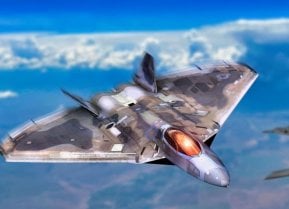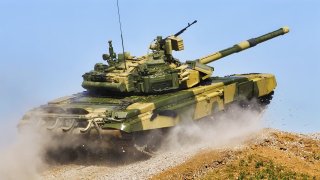Is North Korea’s Military Involvement in Ukraine a Game-Changer?
In mid-October, Ukraine’s President Vladimir Zelenskyy claimed that ten thousand North Koreans were already fighting in Ukraine. A few weeks later, NATO confirmed the presence of North Korean troops, not in Ukraine, but in Russia’s Kursk region.
North Korean Entanglement in the War in Ukraine: A Tempest in a Teapot: In mid-October, Ukraine’s President Vladimir Zelenskyy claimed that ten thousand North Koreans were already fighting in Ukraine. A few weeks later, NATO confirmed the presence of North Korean troops, not in Ukraine, but in Russia’s Kursk region.
Why did North Korea feel the need to move troops 4,150 miles west of its capital? What are the implications of this North Korean involvement in Russia’s aggression in Ukraine?
The Russian-North Korean Treaty on Comprehensive Strategic Partnership from June 2024 commits both countries to, "provide military and other assistance with all means at their disposal," if either is attacked.
While this treaty does not obligate North Korea to support Russian interventions in sovereign countries, Ukraine’s counterattacks on Russian territory, including Kursk, have triggered Article Four of the treaty, compelling North Korea to aid Russia. To secure reciprocal assistance should North Korea face an attack, it is rational for the country to demonstrate to Russia that the treaty’s interpretation includes providing not only military hardware or ammunition but also troops.
This offers a straightforward rationale for the presence of North Korean soldiers in Kursk, where they are fighting Ukrainian forces rather than being stationed within Ukraine itself.
However, this does not capture the whole story.
Beyond reciprocity, there are additional strategic and political benefits. For both Russia and North Korea, these joint operations offer valuable experience and an opportunity to test the compatibility of their military forces, something challenged by linguistic, technological, and other barriers. Operations in Kursk, as well as training exercises in Khabarovsk and Vladivostok that facilitated the North Korean presence, may have allowed for some level of military interoperability development between these allies.
Professor Moon Chung-in, the former National Security Adviser to the President of South Korea, has suggested that North Korea may also be seeking Russian assistance in advancing its nuclear technology.
According to Daniel DePetris’ study, Russia’s support for North Korea in the United Nations may represent a quid pro quo in exchange for North Korea’s support regarding Ukraine. Russia has wielded its veto in the UN Security Council to block more stringent enforcement of sanctions against North Korea. Visible cooperation with Russia may also serve North Korean leadership as a symbolic display of independence from agreements with the United States, emphasizing that North Korea has an alternative great power ally and thus does not require U.S. support.
This outlook, presented recently by the former presidential security adviser, was described also by a former South Korean first deputy foreign minister, Prof. Jong-kun Choi, as encapsulating the general mood of North Korea’s emerging pro-Russian policies at a seminar at the University of Cambridge in January 2024.
NATO’s new Secretary General Mark Rutte characterized the deployment of North Korean troops in Kursk as a significant escalation in the Ukraine conflict. His statement came at a time when some European NATO members, alongside the Secretary-General, were advocating for escalation against Russia by moving NATO troops to Ukraine and authorizing Ukraine to carry out deep strikes within Russia using NATO weaponry.
Nonetheless, North Korean aid to Russia is different than NATO's assistance to Ukraine. If such support enables Ukraine to strike Russia’s strategic nuclear facilities, it could, under classical nuclear doctrines, be interpreted as a first strike, thus inviting a nuclear response. North Korea’s involvement does not alter Russia’s nuclear deterrence against a NATO/Ukraine first strike, nor does it alleviate concerns of a direct conflict between NATO and Russia, which continues to restrain NATO’s actions.
Moreover, punitive strikes on North Korea are beyond the capacity of European nations and remain an option solely for the United States. This, too, is unlikely to be seriously considered, especially since in October 2024 North Korea demonstrated the capabilities of its Hwasong-19 intercontinental ballistic missiles, indicating that it can potentially target the U.S. mainland with nuclear weapons.
The North Korean presence in Kursk is also unlikely to significantly impact South Korea, despite South Korean government threats to support Ukraine reciprocally. Under current law, South Korea is prohibited from sending lethal military aid to Ukraine while it remains engaged in active conflict. Altering this law would require parliamentary approval, which is improbable given that the President's party is in the opposition and nearly eighty percent of South Koreans oppose the transfer of lethal weapons to Ukraine.
Thus, South Korea’s threats of reciprocal support are likely to remain rhetorical.
In conclusion, while North Korea’s military support for Russia is understandable, its broader impact seems limited. It does not constitute a significant escalation in the Ukraine conflict, nor does it rationalize Western escalation. This development appears, in essence, to be another tempest in a teapot.
About the Author:
Timo Kivimäki is a professor of international relations at the University of Bath, United Kingdom.
Image Credit: Creative Commons and/or Shutterstock.


